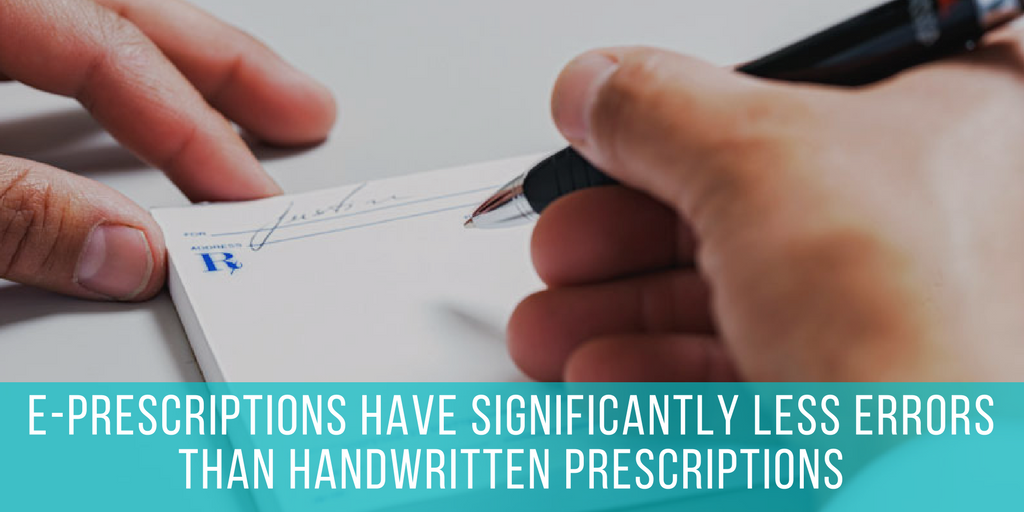

----- Blog Index / Study-Shows-e-Prescriptions-Aid-in-Best-Practices-for-Opioid-Prescribing [MDToolbox Staff] [2017-07-19]

Implementing ways to fight the national opioid epidemic is at the forefront of many states’ legislative sessions. As we’ve mentioned in several previous posts, a growing number of states are fighting the epidemic by requiring prescribers to electronically prescribe these controlled substances. A new study published by the Journal of Opioid Management shows that these lawmakers are on the right track. And it’s more than just increasing legibility and preventing prescription fraud.
Researchers from John Hopkins University analyzed 510 prescriptions for opioids looking for errors, discrepancies, and variations from ideal practice1. The study included both handwritten and electronically generated prescriptions filled at an outpatient pharmacy. An alarming 89% of handwritten prescriptions contained errors. What’s more is that 41% of those prescriptions were noncompliant with DEA rules. Overall, 92% of handwritten prescriptions failed to meet ideal practice standards, contained errors, or were noncompliant with DEA rules.
In contrast, none of the EHR computer-generated prescriptions contained errors and all of them were fully compliant with DEA rules. Electronic prescriptions are written using standard templates where most of the time the software will not even allow a prescriber to save the prescription without including necessary information such as the date, amount, and at least two patient identifiers. The software also aids in making sure any additional DEA rules and best practices are being followed.
The opioid epidemic needs to be tackled from several angles, including making sure the prescriptions that are being provided are accurate and safe for patients. Patient safety needs to be a top priority and prescribers need to make use of the tools available to aid them in following best practices and ensuring all DEA rules are abided by. Electronically prescribing has been shown time and time again to be a powerful resource. For more information on how to get started with e-Prescribing, contact us at info@mdtoolbox.com or 206-331-4420.
1. An analysis of errors, discrepancies, and variation in opioid prescriptions for adult outpatients at a teaching hospital http://www.wmpllc.org/ojs-2.4.2/index.php/jom/article/view/556